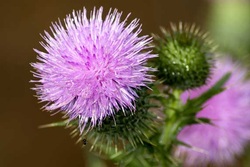Welcome to the Virtual MS Center!
Ask any question you want about Multiple Sclerosis and one of our experts will answer it as soon as possible.
 Question: While waiting on my Tecfidera to arrive, I have been researching. Yesterday I came across this study: http://registration.akm.ch/einsicht.php?XNABSTRACT_ID=137548&XNSPRACHE_ID=2&XNKONGRESS_ID=150&XNMASKEN_ID=900. I am seeking the opinion of a neurologist to see if it is rationale to try an herbal route before Tecfidera. There are several herbs that work on the Nrf2 pathway that Tecfidera is said to work on. If Tecfidera works by reducing oxidative stress, then can't herbs that do the same thing be taken instead? The blend Protandim is cited as working better than Tecfidera on reducing oxidative stress and Protandim is just Turmeric, milk thistle, ashwagandha, bacopa monniera or water hyssop and EGCG or green tea. You may not be familiar with the herbs or comfortable advising on herbal treatments, but is there a way to respond that just addresses what is MOST effective at reducing oxidative stress with the least side effects? Is there anyone you can consult on this? I can't find any medical professionals who are familiar with both pharmaceutical and herbal treatments! Answer: This is a really excellent question and gets at the heart of how research works. We either begin with a clinical observation and then try to deduce a mechanism or we begin with mechanistic target, develop a molecules that affect that target and test it is clinical trials. Tysabri is an example of the later form of research; it was thought that blocking adhesion molecules involved in the transit of inflammatory cells across the blood brain barrier would be beneficial. Tysabri was designed to perform this function and it obviously did well in clinical trials. Tecfidera or dimethylfumarate studies in MS were based on a clinical observation of potential benefit in MS patients receiving this treatment for their psoriasis. This clinical benefit was substantiated in several well designed, large, randomized clinical trials. Subsequently, scientists began investigating potential mechanisms of action and initially focused on Nrf2 stress response pathway effects. There are several other postulated mechanisms of action that are independent of effects on the Nrf2 pathway. Both Tysabri and Tecfidera are used to treat MS because of the effects demonstrated in clinical trials, not because of their potential mechanism of action. The potential mechanism of action is important only in so far as it provides potential information about disease pathogenesis, short and long term side effects and the ability to develop or discover similar molecules for testing in clinical trials. Many of the molecules you mention have been shown to have effects on oxidative stress pathways, but they have not been shown to be beneficial in MS or studied adequately. It is incumbent on the makers of these products or the scientific community or both to perform clinical trials with these agents before claiming benefits to patients. I would certainly be reluctant to advise using any of the products mentioned to treat your MS as a substitute for therapies with greater documentation of both their risks and benefits. -Rip Kinkel, MD Comments are closed.
|
PLEASE NOTE: This information/opinions on this site should be used as an information source only. This information does not create any patient-HCP relationship, and should not be used as a substitute for professional diagnosis and treatment. Please consult your health care provider before making any healthcare decisions or for guidance about a specific medical condition.
Archives
June 2024
Categories
All
|